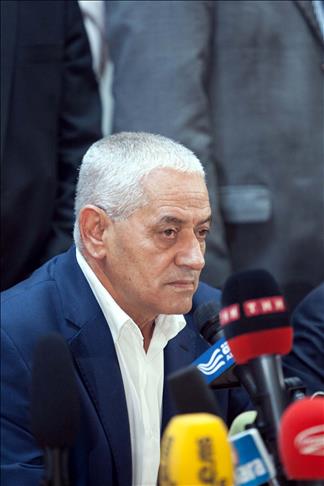
“Unfortunately the negotiations of national dialogue have been suspended for an undetermined date," said Houcine Abassi, head of Tunisia's biggest labour union Monday evening in a press conference.
“We all share responsibility for this failure but we will all try to find solid grounds of agreement in order to continue the talks and agree on one candidate,” said Abassi.
The announcement of the new prime minister was due to be last Saturday but political leaders failed to reach consensus and talks were extended two more days.
The two frontrunners for premier are opposition-backed 79-year-old Mohamed Ennaceur, and Ahmed Mestiri, an 88-year-old supported by the ruling party Ennahda and its allies. Both are well respected and served under Tunisia ‘s first president, the late Habib Bourguiba.
Thousands of Tunisians took to the streets two months ago demanding that Ennahdha and its ruling coalition step down to make way for an interim caretaker government to help stabilize the country before the proposed elections.
The talks to resolve the political crisis, which began October 25, call for the current transitional government to resign in favor of technocratic prime minister.
All major opposition parties and two of the three parties in Tunisia’s governing coalition signed the roadmap agreement. This states that all parties signed up will meet to direct negotiations, it mandates that the current government resign three weeks from the first session of talks in favor of a technocratic prime minister to be chosen during the dialogue.
The new prime minister is due to replace current leader Ali Laarayedh, will nominate a caretaker government and lead it until new elections are held.
The talks were intended to resolve Tunisia’s political deadlock, which began when opposition politician Mohamed Brahmi was assassinated on July 25 this year.
englishnews@aa.com.tr


